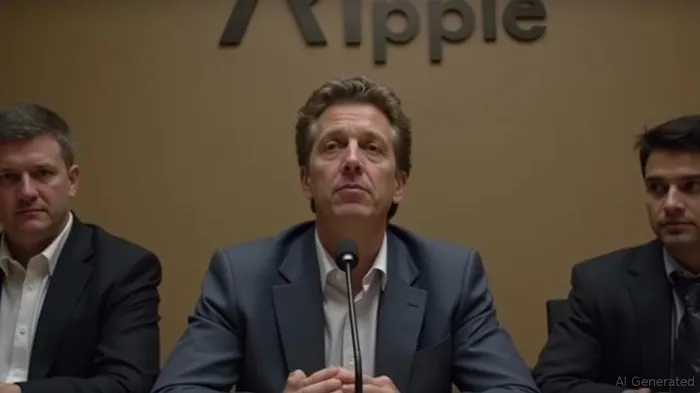XRP News Today: Ripple CTO Admits Fabricating Ozzy Osbourne Q&A Calls It Authenticity Failure
Ripple’s chief technology officer, David Schwartz, has admitted to fabricating fan questions and sanitizing responses from rock legend Ozzy Osbourne during a 2000s-era Q&A event, calling the experience a "failure" in terms of authenticity. The revelation, shared via X on July 17, 2025, details his role in curating interactions for Black Sabbath members using WebMaster’s ConferenceRoom software. At the time, Osbourne—then a band member—was the sole focus of fan inquiries, with Schwartz noting that "every question was for Ozzy," leading him to pre-draft responses for other band members to avoid sidelining them [1].
Schwartz, then a WebMaster employee, described his task as relaying questions to the band via phone and transcribing their answers in real time. However, he quickly realized the imbalance in engagement: "There just weren’t any" questions for non-Ozzy band members, prompting him to insert "canned questions" in rotation. He blended these with responses from managers to maintain the illusion of active participation. "I felt really bad about the whole thing," Schwartz wrote, emphasizing that the event fell short of his goal for genuine celebrity-fan interaction. He estimated only "two or three" legitimate questions reached the band, underscoring the disparity between intended and actual outcomes [1].
The ethical compromise extended to Osbourne’s language. Schwartz revealed he censored the singer’s frequent use of profanity, describing the act as a reflection of "cultural sensitivity" at the time. "I censored the C-words," he admitted, acknowledging the irony of filtering a rock icon’s responses during a platform designed for unfiltered engagement. The poor call quality further complicated transcription, yet the decision to omit such language was deliberate, according to his account [1].
The admission resurfaces as tributes for Osbourne—who died at 76—have surged, though Schwartz’s focus remains on the incident’s broader implications. He framed the episode as a cautionary tale about the tension between technological tools and human intent, highlighting how the pressure to ensure fairness (by involving all band members) clashed with the desire for authentic interaction. While the Q&A was perceived as a success by audiences, Schwartz’s personal reflection underscores the gap between technical execution and ethical integrity [1].
The revelation adds a historical layer to ongoing debates about transparency in digital platforms, particularly given Schwartz’s current role at RippleXRP--. Coinciding with recent scrutiny over a $175 million XRPXRP-- transfer by a Ripple co-founder [2], the Osbourne Q&A saga illustrates the enduring challenges of balancing efficiency with authenticity in decentralized systems.
The incident also serves as a case study in early internet practices, where the nascent field of digital interaction faced dilemmas about moderation, authenticity, and user expectations. Schwartz’s candid account—admitting to "cheating" for the sake of operational balance—resonates with broader discussions about the evolution of online engagement, where polished outcomes sometimes come at the expense of raw, unfiltered human connection [1].
Source: [1] [title1: Ripple CTO David Schwartz Regrets Ozzy Osbourne Black Sabbath Confession] [url1: https://cointelegraph.com/news/ripple-cto-david-schwartz-regrets-ozzy-osbourne-black-sabbath-confession] [2] [title2: XRP Dump: Ripple Co-Founder Under Fire for Moving $175M XRP Near Highs] [url2: https://cointelegraph.com/news/xrp-dump-ripple-co-founder-under-fire-for-moving-175m-xrp-near-highs]

Quickly understand the history and background of various well-known coins
Latest Articles
Stay ahead of the market.
Get curated U.S. market news, insights and key dates delivered to your inbox.



Comments
No comments yet